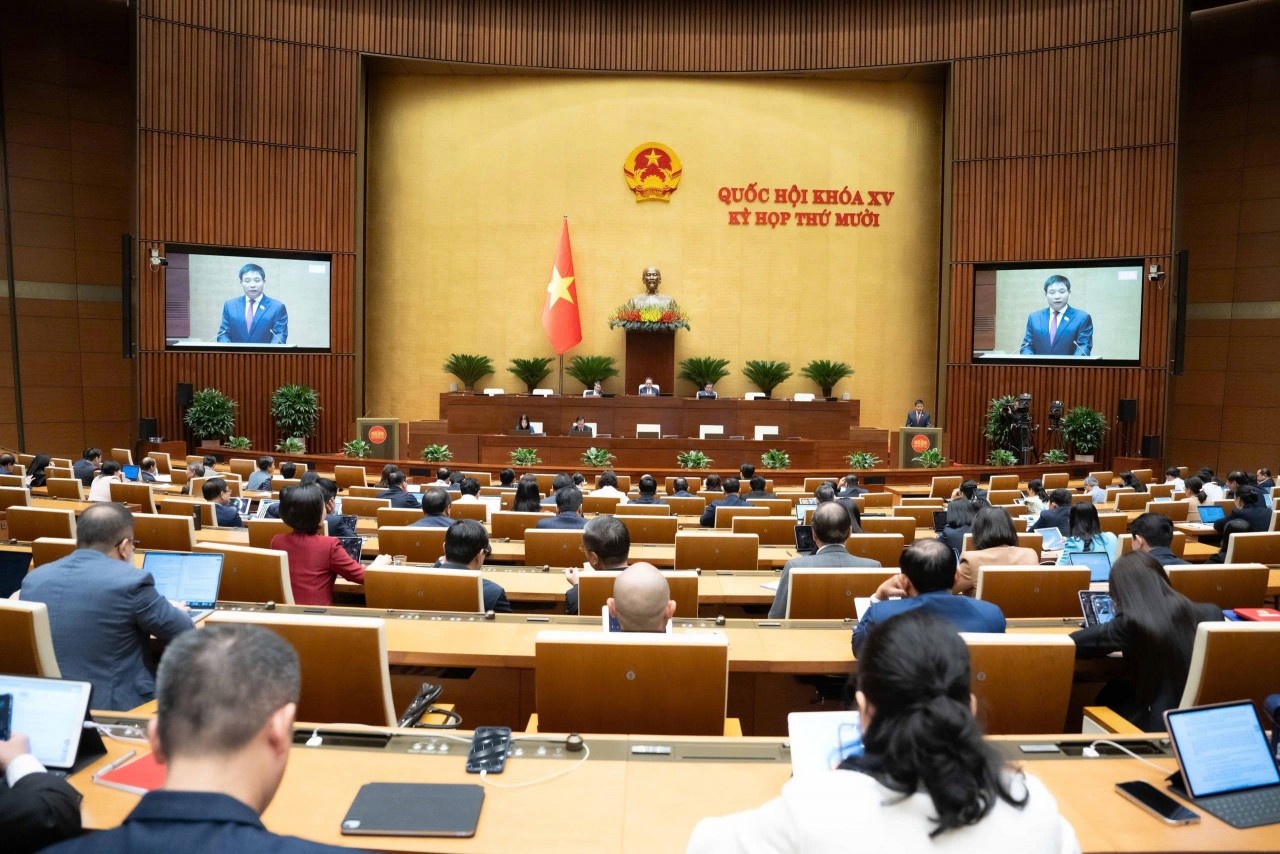Minister of Finance Nguyen Van Thang made the proposal on several legislative proposals related to taxation, including the amended Law on Tax Administration and the amended Law on Personal Income Tax, on November 4.
 |
| Minister of Finance Nguyen Van Thang presented statements about tax laws before the National Assembly |
According to the report, the draft amended Law on Tax Administration adds provisions on classifying taxpayers and introduces the principle of managing taxpayers based on these classifications.
The draft also includes a provision allowing tax authorities that collect state budget revenue that exceeds annual estimates approved by the National Assembly to allocate funds for supplementary income payments to public servants and employees, yet not exceed their full salaries.
The draft further supplements regulations on compliance management, including preferential treatment for highly compliant taxpayers, and a provision exempting taxpayers from penalties in cases where system failures prevent them from fulfilling their obligations on time.
The law is expected to take effect on July 1, 2026. However, tax administration for household businesses and individual business owners will take effect on January 1 in line with Resolution No.68-NQ/TW and National Assembly Resolution No.198/2025/QH15, which calls for the abolition of a lump-sum tax system.
Regarding the draft amended Law on Personal Income Tax, the government proposed revising provisions related to individual business income tax.
The amendments include adding several taxable income categories and revising the current annual revenue threshold exempt from tax, now VND200 million, equivalent to $8,000, to ensure consistency with the Law on VAT.
The draft also introduces new methods for calculating tax on business income earned by resident individuals and adjusts the tax rate on certain types of income, from 2 per cent to 5 per cent, for activities such as providing digital content, entertainment, and online gaming services.
Concerning personal deductions, Thang noted that on October 17, the National Assembly Standing Committee approved a resolution to adjust the family circumstance-based deduction under the personal income tax law.
The new rates raise the deduction for taxpayers themselves to VND15.5 million ($620) per month and for each dependent to VND6.2 million ($248) per month.
With these new deduction levels, individuals will not be subject to personal income tax if their monthly income is $680) (no dependents), $960 with one dependent, or $1,240 with two dependents.
To enhance decentralisation and flexibility, the draft law authorises the government to adjust these deduction levels based on price and income fluctuations.
Additionally, the draft refines and expands the scope of deductible charitable and humanitarian contributions to better reflect actual circumstances.
Another key proposal is to revise the progressive tax schedule applied to resident individuals with income from salaries and wages.
The number of tax brackets will be reduced from seven to five, with wider income ranges between brackets.
For income from real estate transfers, the draft retains the current 2 per cent tax rate applied to each transaction, as stipulated in existing law.
Regarding income from capital transfers, a new tax calculation method is added: if the purchase price and related costs cannot be determined, the personal income tax will be calculated as 2 per cent of the selling price applicable to both resident and non-resident individuals.
Of note, for gold bullion transactions, the draft authorises the government to determine when and how to apply taxation, set value thresholds for taxable transactions, and adjust the tax rate as appropriate to market management.
The proposed personal income tax rate for gold bullion transfers is 0.1 per cent of the selling price per transaction.
“This provision ensures that the government has a legal basis to decide on taxation and related details once conditions are appropriate, thereby strengthening its tools for managing and steering the economy towards double-digit growth targets.
It is also a necessary step to maintain economic stability, complying with the Party and state's directives on strict gold market management, curb speculation, and channel greater social resources into the productive economy,” Thang noted.
Additionally, the income threshold for determining taxable income on certain types of earnings, such as winnings, royalties, franchise income, inheritances, and gifts, has been adjusted from $400 to $800.
At the same time, the draft law introduces new provisions on personal income tax exemptions and reductions to institutionalise the Party's and state's key directives and policies.
The aforementioned resolutions aim to spur breakthrough development in science and technology, innovation, and digital transformation; build a modern and equitable education system; protect, care for, and improve people's health; and promote private sector development.
.







































